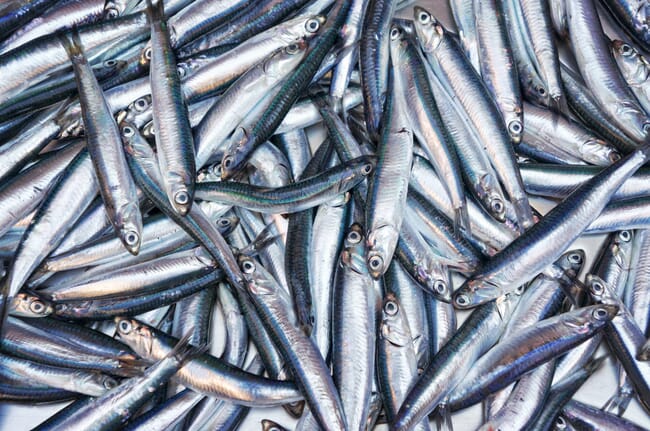The launch of version 2 of our IFFO Responsible Supply of Marine Ingredients marks a major new milestone in development of the standard. The new version, which was produced with the help of many parties, includes a major revision of the fisheries assessment methodology including something to cover multispecies fisheries, a new Good Manufacturing Practice section for the factory and altered clauses covering social welfare and pollution management. These changes should ensure that the standard is now better placed to encourage improvements in the marine ingredient industry and its associated fisheries, in all regions of the world including Asia.

© Anchovies are a key provider of fishmeal and fish oil.
In 2007 the International Fishmeal and Fish oil Organisation (which later became IFFO, the Marine Ingredient Organisation) decided to form a Technical Advisory Committee (TAC) to formulate what its response should be to the growing need to demonstrate responsible practices in the fishmeal and fish oil industry. This multi-stakeholder committee, with representatives from all parts of the value chain and environmental NGOs, quickly decided that what was needed was a credible third-party audited factory standard. The standard should allow a marine ingredient factory to demonstrate its responsible management, both in its raw material sourcing and its manufacturing practices.
The TAC developed a standard consisting of an assessment for any fisheries raw material used in approved products to ensure responsible sourcing and a definition of what responsible production in the factory consisted of. The standard was launched in 2009 as the IFFO Global Standard for the Responsible Supply of Marine Ingredients – IFFO RS for short. The standard quickly became the leading standard for the industry such that by 2016 over 40% of the world’s marine ingredients were certified to the standard. The main driver for this growth has been the adoption of IFFO RS by the global salmon feed market.
From its launch till 2016 a number of changes and amendments were introduced to ensure that the standard remained relevant and credible. The third-party certification bodies conducting the auditing were required to have the standard accredited to ISO 65 (later to become ISO 17065). A separate company, IFFO RS Ltd, was formed and the TAC became the Governance Board. An Improvers Programme was introduced to encourage fisheries and factory improvements. New clauses were also introduced which dealt with the responsible control of emissions and effluent as well the rights of the employees.
However, over the eight years since it was launched the world of fisheries management and concerns over the responsible management of factories have moved on. Also, whilst salmon farming was the early adopter of the standard, other sectors of aquaculture – notably shrimp, tilapia and pangasius – are all now looking to demonstrate their responsible practices. These forms of aquaculture have grown most rapidly in Asia, bringing a new set of challenges.
The Governance Board therefore decided in 2016 that it was time to revisit the whole standard and produce a Version 2. To this end a new TAC was formed from the many industry stakeholders and they set about going through the standard clause by clause and changing it where it was felt appropriate. A number of outreach workshops were also run to obtain the widest range of views and twice the drafts were put out for public consultation.
The final version of the standard contains many improvements and updates, with a new fisheries assessment methodology including something to cover multispecies fisheries (although the methodology for tropical trawl fisheries is still under development and will be added later in the year), a new Good Manufacturing Practice section and altered clauses covering social welfare and pollution management. The IFFO RS Governance Board approved Version 2 at its last meeting and the standard went into force today.
Another initiative, which has been conducted at the same time as the development of Version 2, has been to ensure that all IFFO RS practices and procedures are in alignment with the ISEAL Code of Good Practice. To this end we are in the process of setting up a Monitoring and Evaluation programme which will record what environmental improvements the standard is having and how well we are meeting our declared objectives. We are confident that this, combined with the introduction of Version 2, will ensure that IFFO RS remains a credible standard into the future and that it will find an increasing role in providing reassurance to users of marine ingredients in both the aquaculture and human nutrition markets throughout the world.


